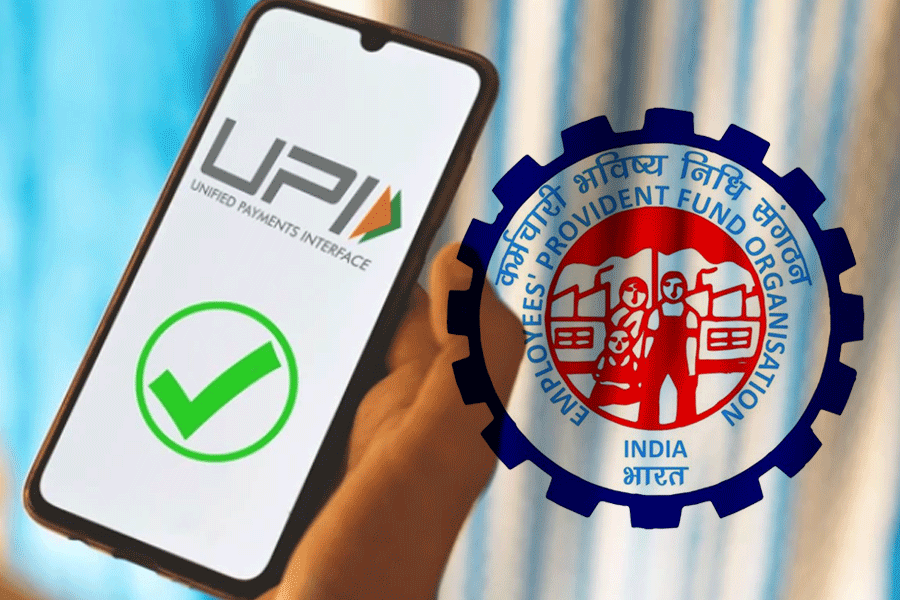New Delhi, Jan. 9: The BJP, which projected Prime Minister Atal Bihari Vajpayee as the apostle of peace after his Islamabad initiative, is out to refurbish deputy L.K. Advani’s image as a believer in non-violence and a Muslim-friendly leader as the second prong of its strategy to reinvent itself as a “liberal, centrist” party.
The deputy Prime Minister, whose political career got its first big boost on the Ram temple plank and who was a symbol of Hindutva for decades, is using Ayodhya for the makeover. The catalyst is an appeal issued yesterday by the Dalai Lama to resolve the Ayodhya row through “mutual trust, mutual faith and mutual respect”.
A statement by Advani today said he endorsed the Dalai Lama’s sentiments and added that not only was the spiritual leader “our revered guest but also a living symbol of religious harmony and tolerance”.
Advani asserted that the NDA government would “actively participate in any serious and reasonable effort to settle the issue in an amicable manner”.
“I am also sure that the Hindu organisations which are endeavouring to build a temple for Shri Ram will also be keen to settle the issue by dialogue,” Advani said in a hint to the RSS and the VHP, which usurped the Ayodhya issue from the BJP after the latter jettisoned it from the NDA agenda.
“I am sure that we will use whatever persuasive power we in the government and in the BJP have over those who had launched the movement for Ram temple at Ayodhya to participate in any amicable settlement on Ayodhya,” he said.
The Centre’s sustained efforts to resolve the impasse through various intermediaries, including the Kanchi Sankaracharya, were stalled because of the VHP’s refusal to give up its “claim” over the “disputed” Gyan Vapi mosque in Varanasi and Shahi Idgah in Mathura.
The All India Muslim Personal Law Board and the Babri Masjid Action Committee — the two principal Muslim representatives — had indicated they could relinquish their claim over Ayodhya provided the VHP kept its share of the bargain.
“I also believe that the Ayodhya issue concerns the larger relation between the Hindus and Muslims and should not be viewed as just a temple versus masjid issue. A peaceful solution has the potential to correct the wrong trends in the relations between the two communities which are a residue of the past,” Advani said.
His statement — despatched by the home ministry — was accompanied by an extract on his Rath yatra of 1990 from a book titled The Saffron Swastika by Belgian priest and professed Sangh sympathiser Koenraad Elst. The passage argued that the yatra did not spill blood on its course.
The BJP’s efforts to soften Advani’s image and live down its own as an “anti-minority” party are running parallel and are more manifest now than in the past. Last week, party president M. Venkaiah Naidu urged Muslims and Christians to look afresh at the BJP and today he welcomed the Dalai Lama’s appeal.
Mixed reaction
While the BJP and the RSS welcomed the Dalai Lama’s appeal for an amicable settlement to Ayodhya, the VHP and the Muslim law board were sceptical.
“We hope both communities will respond positively to his appeal. It is the desire of the people of India to see a temple on Ram’s birthplace. There are no two opinions on this. But this is possible only when the Muslims withdraw their title suit over the disputed land,” said Naidu.
But the VHP reiterated its old stand, although guardedly. A statement jointly issued by Ashok Singhal, Praveen Togadia and Giriraj Kishore said Ayodhya was linked to the “faith of crores of people, including the sants”. They asserted that the people would “accept only an effort which respects the self-respect and sentiments of Hindus”.
Muslim law board spokesman S.Q.R. Ilyas said the appeal did not contain a concrete proposal. “Talks have been held several times but no solution has been found so far,” he said.
“We are not shying away from dialogue but we will not talk to those responsible for the Babri masjid demolition,” said Ilyas.










